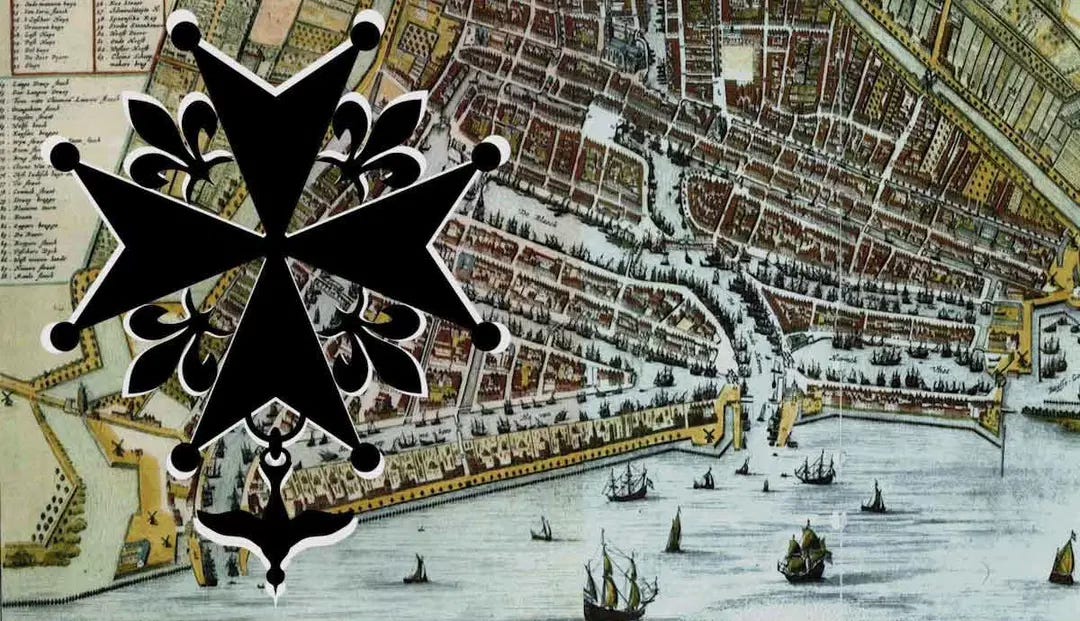Personal Reflections From My Study of Jean Claude
Part 4 in a series on Jean Claude, the great Huguenot Preacher and Theologian
If you missed Part 3, click here.
I learned a great deal from my study of Jean Claude. Firstly, I learned about the French Huguenots' detailed origins, struggles, and eventual demise. I chose this topic simply because I knew practically nothing about them and wanted to learn about such an impactful moment in Reformed Church history.
More specifically, I learned about Jean Claude. Many figures from the Huguenot era would be worthy of study.[1]Still, I am thankful that I was led to select this man because his dedication to the Reformed faith, his love of preaching, and his steadfastness are traits I aspire to in my ministry. His life sets an example of what dedicated ministry looks like. I was struck with admiration when I discovered he turned down a call to be a lecturer at the University of Groningen. This would have removed him from the tenuous and dangerous situation of being a Reformed minister in France. He could have been free from the struggle and dedicated his time to forming the next generation of ministers, something that he was clearly passionate about. However, he declined the call and remained in Nimes to continue fighting with the written word and ministry for the reformed cause. To me, Jean Claude has been cemented as a bonafide hero of the faith.
Beyond exploring the life and times of Jean Claude, I had the pleasure of discovering some translations of his work. These were delightful finds, specifically his work on the preparation for the Lord’s Supper. He begins this work drawing from Exodus 3, Moses and the burning bush. He says,
“God was pleas’d to put a stop to Moses’s rash and hasty motion, towards the bush, to teach us that when the question is about going into his special presence we can never use too much caution, circumspection, and reserve. And as to the command of putting off his shoes; it is certain that under the figure of that bodily action, he intended an inward sanctification.”[2]
The current nature of our (my family’s) life is that we often attend church away from our home church because I regularly fill vacant pulpits in our area. And, because I am not ordained, where I preach, the Lord’s Supper is never present. Some months ago, on Good Friday, we celebrated the Supper, and it was the first time I had received the elements since July of the year prior! I had not realized how long it had been and mourned the loss of this regular event. The Eucharist had become a hypothetical aspect of my Christian discipleship, not an event where my soul was being nourished. Reading the words of Jean Claude on the supper was a balm to a weary soul. I was moved to long for the Supper as much as I have long for the triumphant arrival of our Lord Jesus Christ. I asked my elder to let me know of future communion Sundays so I can place them in our calendar and ensure that I am not preaching away from home on those Sundays. Jean Claude has helped me understand the need for the Supper and the need for proper preparation.
Conclusion
Jean Claude (1619-1687) was an esteemed Huguenot minister and theologian. He lived and served God’s church when the Reformed faith was under duress from the French Catholic Monarchy. In the wake of the St. Bartholomew’s Day Massacre, the Edict of Nantes was announced to give the French Reformed church minimal rights to gather and worship. Claude ministered during this time, experiencing limits and unjust banishments on his work. However, he never tired nor flagged from his convictions, which resulted in a final expulsion from the Kingdom of France. Jean Claude’s life is a testimony to God's faithfulness. He remained in a perilous situation because he served a greater God. His dedication to his work is evident in the many accounts of his life that esteem his piety and conviction in preaching, shepherding, and defending the Reformed church in France.
Even some four hundred years later, his ministry is bearing fruit, as I have personally benefited from his life and works. His life showcases what dedicated service to the church and the Lord looks like. His work, specifically on preparing for the Supper, has taught me of God’s holy action in the wonderful, beautiful, and experiential nature of Christ’s finished work on the cross symbolized in the bread and the cup. His life testifies to the beautiful grace that is found in Jesus Christ. To sum up, allow me to lean on the sublime words of a biographer, Jean Claude
“was a learned divine, a great preacher, an able and zealous defender of the Reformation, a rigid observer of our confession of faith, an enemy of all such sentiments as might have disturb’d the peace of the church, and the purity of religion, and the regulations of discipline. He was of easy access, frank and fluent conversation, and all these great qualities were season’d with such profound humility…he was belov’d by his friends, esteem’d by his adversaries, and his name which has past with so much lustre into foreign countries, he has there gain’d the admiration of those very people, who did not love his religion, and ever will be had in veneration in the Church.”[3]
[1] Again, let me recommend Rebecca VanDoodewaard, Reformation Women: Sixteenth-Century Figures Who Shaped Christianity’s Rebirth(Grand Rapids, Michigan: Reformation Heritage Books, 2017), chapters 5,6,8,9.
[2] Jean Claude, Self-Examination, In Order to a Due Preparation for the Worthy Receiving of the Sacrament of the Lord’s Supper, English (Edinburgh: Gavin Hamilton and Company, 1732), 2-3.
[3] Abel-Rodolphe de. Ladevèze, The Life and Death of Monsieur Claude, the Famous Minister of Charenton in France Done out of French by G.P. (London, 1688), 57.




